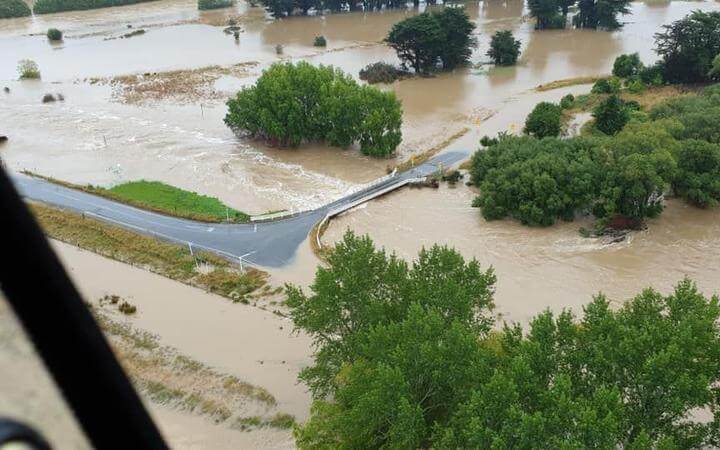More than a month on from Southland’s floods Emergency Management Southland (EMS) is continuing with Recovery efforts – with advice and support still widely available.
Recovery Manager Ken Swinney said EMS recovery coordinators have been active in flood affected areas.
In Fiordland, Community Board Chair Sarah Greaney is coordinating the recovery, supported by Southland District councillor Ebel Kremer.
For Eastern Southland, the local recovery coordination is being done by Gore District Council team member Shelley Lithgow (focusing on Gore) and Mataura community development coordinator Eleanor Ranstead (focusing on Mataura).
Recovery coordination for the rural sector is being led by the Rural Support Trust.
Local coordinators were the first point of contact for people affected by flooding related issues.
“They are able to assist with providing information and directing people to relevant agencies for assistance.”
Swinney said while for many, the flooding event is already being relegated to history, those directly affected need ongoing support to deal with the challenges they are facing.
“We still have some major disruption to deal with – there are still several people and families who are out of their flood-damaged homes.”
There were 19 residential properties affected, with some people taking up the temporary accommodation option provided through the Ministry of Business, Innovation and Employment, others staying with friends/family, and some finding alternative temporary accommodation.
Directly affected people who registered with EMS were contacted again last week (March 5) to see how they were getting on. With their temporary housing needs met, feedback was that most were feeling more positive, Swinney said.
The rural sector was getting through clean-up work and on-farm repairs, but there were concerns around winter feed shortages, availability of contractors, and the uncertainty surrounding Covid-19, he said.
“Most of them have been very resilient, but it’s not the only challenging thing happening in farming right now,” Swinney said.
The Rural Recovery Team had made contact with about 1000 people in rural areas potentially affected by the flooding, followed up with 110 farm/home visits, and was maintaining contact with about 30 people who had raised wellbeing issues, he said.
The Southland Mayoral Relief Fund had received 32 applications from the Gore, Mataura and Te Anau areas, and these were being worked through.
There was positive news around the Milford Road, with bus convoys operating several times daily, but the full repair was likely to take 12 to 18 months. NZTA is opening the road to independent travellers between 5pm and to shortly before 7.30am from March 16.
Fiordland Recovery Coordinator Sarah Greaney said it was a mixed bag around Fiordland as although visitors were now able to access Milford Sound, many businesses had already lost substantial revenue, and the impact of Covid-19 was also affecting business confidence and forward bookings.
“The message is that we are open for business. We’re still accessible and are here to welcome anyone that wants to come,” she said.
Swinney said a business survey was being done to get a better handle on issues arising from the flooding.
The Government has this week announced a Business Continuity Package to help support the economy through the disruption caused by Covid-19.
Swinney said the formal Transition Notice is due to lapse on March 17 and is not likely to be extended, however the recovery phase will continue for many months.
Community debriefs had started in affected towns and areas – with EMS keen to find out what worked well and where there was room for improvement, he said.
A meeting of councils and other stakeholders on March 26 will help develop a wind-down strategy covering any outstanding issues.
For help:
Mental health support – Your GP is a good starting point, or for support with grief, anxiety, distress or mental wellbeing, you can call or text 1737 Need to talk? This service is free, available 24 hours a day, 7 days a week and gives you the chance to talk it through with a trained counsellor.
Rural Support Trust – Phone 0800 787 254 (0800 RURAL HELP) or visit www.rural-support.org.nz.
Government helpline – If you’re struggling to support yourself or your family, or you would like more information about what help is available, phone the 0800 Government Helpline on 0800 779 997 (9am–5pm, 7 days a week).

